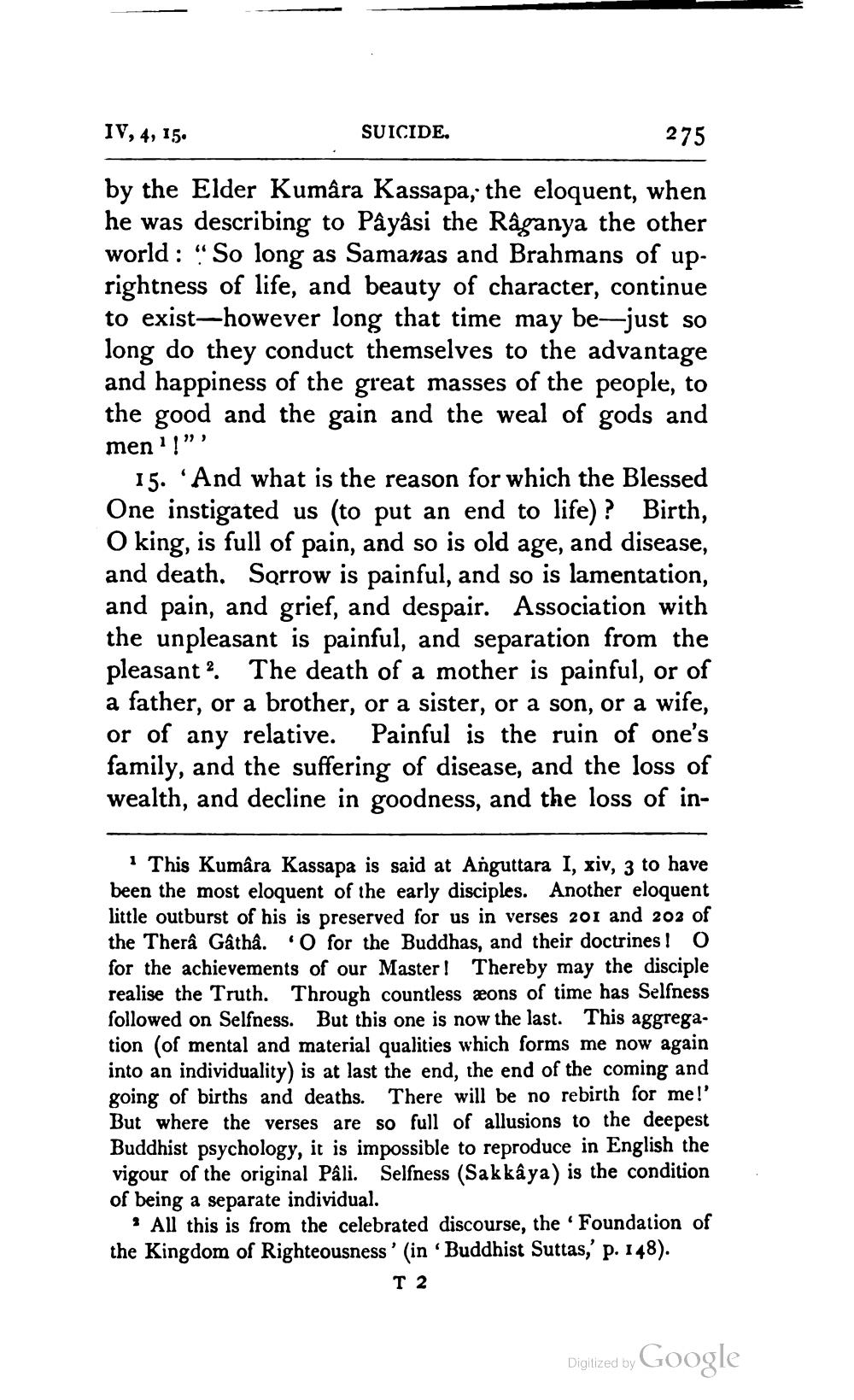________________
IV, 4, 15
SUICIDE
275
by the Elder Kumâra Kassapa, the eloquent, when he was describing to Pâyâsi the Râganya the other world : "So long as Samanas and Brahmans of uprightness of life, and beauty of character, continue to exist-however long that time may be—just so long do they conduct themselves to the advantage and happiness of the great masses of the people, to the good and the gain and the weal of gods and men?!”,
15. 'And what is the reason for which the Blessed One instigated us (to put an end to life)? Birth, O king, is full of pain, and so is old age, and disease, and death. Sorrow is painful, and so is lamentation, and pain, and grief, and despair. Association with the unpleasant is painful, and separation from the pleasant ? The death of a mother is painful, or of a father, or a brother, or a sister, or a son, or a wife, or of any relative. Painful is the ruin of one's family, and the suffering of disease, and the loss of wealth, and decline in goodness, and the loss of in
1 This Kumâra Kassapa is said at Anguttara I, xiv, 3 to have been the most eloquent of the early disciples. Another eloquent little outburst of his is preserved for us in verses 201 and 202 of the Thera Gâthâ. O for the Buddhas, and their doctrines! O for the achievements of our Master! Thereby may the disciple realise the Truth. Through countless æons of time has Selfness followed on Selfness. But this one is now the last. This aggregation (of mental and material qualities which forms me now again into an individuality) is at last the end, the end of the coming and going of births and deaths. There will be no rebirth for me!' But where the verses are so full of allusions to the deepest Buddhist psychology, it is impossible to reproduce in English the vigour of the original Páli. Selfness (Sakkâya) is the condition of being a separate individual.
* All this is from the celebrated discourse, the Foundation of the Kingdom of Righteousness' in Buddhist Suttas,' p. 148).
T2
Diglized by Google




